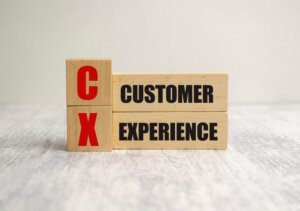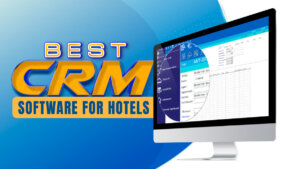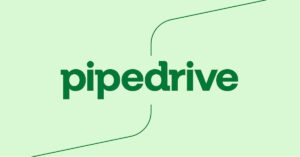Selling or buying property is a complex, expensive process, and agents are often expected to juggle several at once. This creates the need for proper customer resource management (CRM) software to keep each realtor on track, and to keep the flow of closings happening. The right CRM software will depend on your needs, but we look at the best options available to the real estate industry in this article.
Best CRM for Real Estate Overview
- Zoho CRM – Best Overall
- Pipedrive – Best for Pumping Up Sales
- Wise Agent – Best for Large Companies
- Follow Up Boss – Best for Managing Sales Team
- LionDesk – Best for Commercial Real Estate
- Insightly – Best for Customization
- Realvolve – Best for New Agents
- Top Producer – Best for Growing Businesses
Service
Price
Leads Management
Integrations
Automation
Support
Standard – $14/user per month*
Web forms, social media engagement, lead scoring rules
Large library of integrations
Build custom automations w/rules
Docs, videos, community help, and professional consultants; service plans w/phone support
Essential – $12.50/user per month*
Kanban-style customizable sales pipelines, ‘deal rotting’, @mentions, and comment on leads
Marketplace of integrations, including common options
Custom automations, including mobile and email notifications, and webhooks
24/7 help requests and email support
$32/month or $326/year
Capture forms, automation rules for different lead sources, new lead alerts
Integrates Gmail and many other tools directly
Automated drip campaigns, customized notifications, and lead distribution
24/7 phone or email support
Grow – $57/user per month
Pull leads from 200+ sources, pre-written drip campaigns, auto-route leads to agents
Small market of integrations
Easy-to-use interface helps filter leads and create action plans
Business hours phone support, or help tickets and support docs
Starter – $21/user per month*
Lead imports and distribution, track email engagement, AI Chat Sales agent
Short list of integrations
Auto-responders and enhanced drip campaigns
Phone and email support
Plus – $29/user per month*
Create relationship trees to track lead contacts, route leads automatically, track email opening, and more
Drag-and-drop integration builder, w/hundreds of integrations already available
Drag-and-drop app builder to create your own automations
Webinars and help docs; Customer success program
Basic – $74/month
Categorize contacts, track lead sources, search along several criteria
Integrates w/handful of apps
Automations through Zapier
Limited support docs and email support
Starter – $54/user per month*
Connect w/150+ lead sources, insights into contacts’ social media, integrated text and email
Limited native integrations
Follow Up Coach suggests daily contacts, calendar reminders
Support docs, chat and email support, business hours phone support
Quick Verdict
Best Overall – Zoho CRM. Zoho provides all the features you need at an affordable price.
Zoho provides a range of business apps, with its CRM software being one. It’s not a dedicated real estate CRM system, but it offers all the tools the average real estate agent requires.
The software provides a range of useful features, starting with click-to-call capabilities to make phone calls right in the app, through automation and reporting tools, to third-party integrations. Zoho provides just about any CRM tool you may need, at an affordable price.
- Custom sales pipelines.
- Auto-assign leads.
- Phone, chat, email, and more through the app.
- Some nice features saved for more expensive tiers.
Pipedrive isn’t focused on real estate and may be one of the best CRM for eCommerce, with a lot of focus on contact management and creating sales pipelines.
Many of the same features are great for a real estate CRM, however, like communication and lead qualification tools. Real estate agents may also appreciate the ability to automate some repetitive admin tasks.
- Email campaign opening and click tracking.
- AI-driven performance suggestions.
- Create customizable reports.
- ‘Open deal’ limits.
Wise Agent provides a big toolbox to real estate agents trying to locate clients. The real estate business often depends on good timing and the best CRM software helps agents react quickly. Wise Agent can help you find, organize, and respond to new leads quickly, with alerts and other tools.
Additionally, integrating with a range of other apps, for example, Google calendar sync, is easy. The pricing plan is straightforward, with a custom Enterprise plan available for specific needs.
- Free 20 minute set-up session.
- Transaction management templates.
- Custom landing page platform.
- More expensive than some options.
Real estate agencies are usually team efforts, with prospective buyers being divided among real estate agents. Follow Up Boss automates that process, collecting leads from hundreds of sources.
You can then set up your own distribution system or select from some options. You can also set up automation for individual contacts using Action Plans, an easy-to-use feature with a gentle learning curve.
- Export all your data easily.
- Transfer leads automatically.
- Team sales leaderboard.
- Pricey
LionDesk comes at a middle-of-the-road price and with almost all the features you want from a real estate CRM, like handling incoming leads, auto-replies, and some reporting options. It also includes the ability to call or text through the real estate software, though there are limits and overage charges to track.
- Texting manager.
- Enhanced drip campaigns add text and phone calls.
- 30-day free trial.
- Plan limits emails and texts through the app.
Insightly’s CRM might be better thought of as a tool for building a CRM as it’s built around very flexible customization options. These allow you, without doing any complex coding, to build your own tools and dashboards.
In other words, while it may not provide a ready-made real estate CRM, it does allow you to build one. You can even create different tools for different real estate teams.
- Create custom data sets and relationship trees.
- Design a custom dashboard for your agents.
- Scan and upload info from business cards automatically.
- Few ready-made features
Realvolve aims at keeping the real estate CRM they offer fairly simple, so lacks some of the advanced features of competitors. Instead, Realvolve focuses on offering workflows and webinars.
Rather than lots of marketing automation or other tools, they offer help in areas many real estate agents may struggle with, such as organization and efficiency. The workflows have an additional cost.
- Send text and social media messages.
- Workflows and webinars to improve your business.
- 14-day free trial.
- Expensive.
- Workflows have additional costs.
Top Producer’s applications work together as a unit, with their real estate CRM acting as a base the others build on. Together, they may make a great real estate CRM with plenty of tools for managing a business. Without the other apps, however, Top Producer is limited in what it can do.
- Includes other apps.
- Setup coaching and support w/success program.
- Email templates, CTAs, and signatures included.
- Priced higher than competitors.
Choosing the Best Real Estate CRM Software
It’s not unusual for real estate agents to form relationships with their clients. You may be working with them for months, sometimes helping them through landmark moments in their lives. Before you get to that point, however, you have to attract leads, manage your time, and keep everything organized. Customer relationship management, while it might sound a bit cold-blooded, just means doing all that efficiently, to everyone’s benefit.
As a result, successful agents use the best CRM for real estate businesses, and selecting the right CRM system can be vital.
Lead Management
The centerpiece of the best CRM software are its lead management tools. The ability to connect to potential buyers is vital, so lead generation tools need to be robust and easy to use. Once more leads have been generated, advanced lead scoring helps you choose how to use your time best.
Good CRM software should also provide more than just contact management, instead provide a depth of client management tools to aid in developing customer relationships. Some options will also help remind you to reconnect with past clients, fostering the potential for future sales.
Team Management
CRM for real estate has to take into account the size of your business. If you’re a one-person real estate agency, then a collaboration-oriented CRM solution doesn’t do you much good.
On the other hand, it can save larger agencies a lot of time if new leads are distributed automatically. CRM platforms usually include some amount of task management tools, though some are more limited than others.
Marketing
Both old and new real estate agents can struggle to draw attention to their property listings. Marketing automation tools can make a difficult task a lot easier. CRM platforms will often create or link to your agency’s real estate websites, providing chatbots or contact forms. Many will also provide additional marketing options, like email marketing campaigns and other types of drip marketing campaigns.
Transaction Management
The sales process for both residential and commercial real estate is often complex and protracted. Transaction management tools may be necessary simply to keep everything straight.
Once the marketing has done its job and clients are in your sales pipeline, part of the pipeline management should be making paperwork and other bureaucratic aspects as easy as possible. Document management tools, calendars to track important dates, and other features can make things less stressful. A mobile web app means you can handle business even when at a property.
Reporting
Pipeline management is important during the deal but afterward is when real estate professionals can learn how to improve. Reporting can help you spot the hiccups in client relationships, see which team members may need help, or locate where a deal went wrong in your communication history.
Frequently Asked Questions (FAQs) – CRMs for Real Estate
Final Thoughts on CRMs for Real Estate
The CRM app you use for real estate business should reflect your approach to customer relationships. While some are straightforward, simply presenting what you need, others allow you to build your own sales pipelines and methods for success.
 Sections of this topic
Sections of this topic























